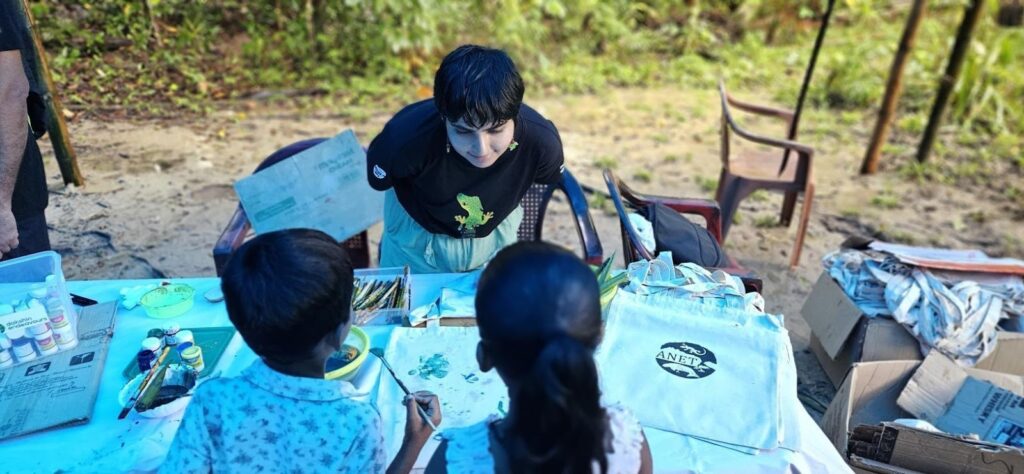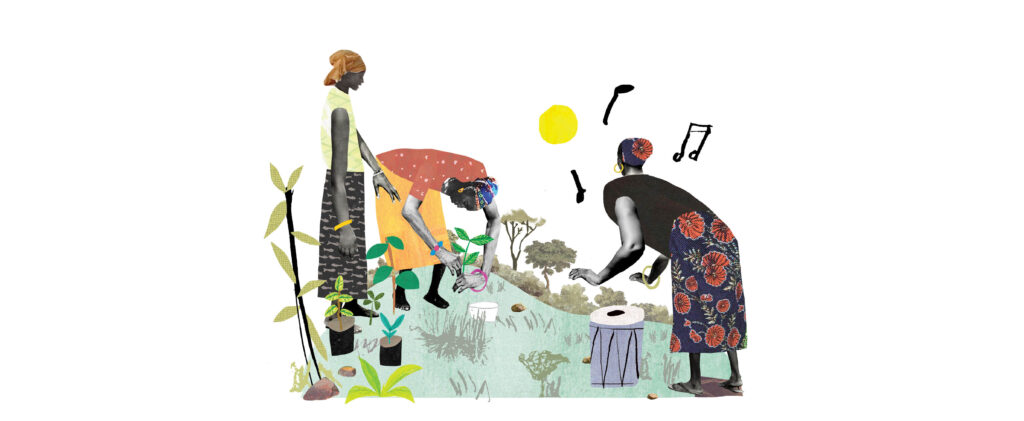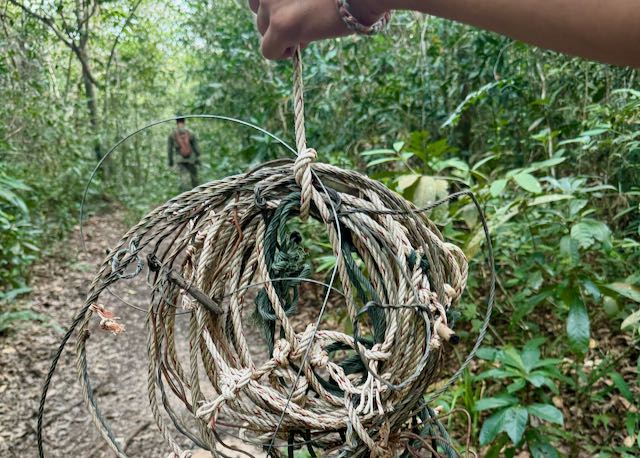Fieldwork is a crucial part of my education and career as a wildlife biologist. However, a significant challenge that people who menstruate (including women, such as myself) face during these trips is their monthly cycle. The reality of managing periods in the field can be daunting, yet this issue is rarely discussed or addressed. Changing a sanitary napkin or tampon requires privacy, water and a hygienic way to dispose of used products. These basic necessities are often unavailable in remote locations, with access to clean, private restrooms being a rare luxury.
Hidden impacts
While carrying out fieldwork in India’s Western Ghats, I have had to endure hours of discomfort because there was no appropriate place to change my sanitary napkin. The constant worry about leakage and the unease of not being able to clean myself properly made it difficult to concentrate on my work. The anxiety and distress that come with such situations are overwhelming, and they definitely affected my focus and productivity.
My sister, who is currently pursuing a Master’s in Geological Sciences, faced even more challenging conditions during her fieldwork in the Himalayas in Uttarakhand, India. She recalls one particular day when she was menstruating and had severe cramps. They were mapping a remote area, and there were no restrooms for miles. After several hours, she couldn’t bear the discomfort any longer and had to leave the group to find a place to change her sanitary napkin. Recognising her distress, her professor arranged a car for her to travel to the nearest toilet. This trip to the closest village took a significant amount of time, during which she missed important parts of the fieldwork.
While this solution provided temporary relief, it highlighted the extreme measures that menstruators often have to take to manage their menstrual hygiene in such challenging conditions. While my sister was lucky to have empathetic colleagues on this day, this is not the most common experience for most people who menstruate in the field.
Women often feel compelled to push through discomfort and health risks to avoid falling behind in their work. This can lead to burnout, health issues, and a sense of isolation. There’s also the fear of being perceived as less capable or dedicated. This prevents many women from voicing their needs or seeking help. In a field where your physical endurance and resilience are often equated with professional competence, that is particularly concerning.
Let’s do something about it
The stigma surrounding menstruation during fieldwork perpetuates a lack of understanding and support. Educating all team members, regardless of gender, about menstrual health is crucial. By fostering awareness and empathy, we can create a more supportive environment where menstruating individuals feel understood and accommodated.
Field sites often lack basic sanitary facilities, posing challenges for managing menstrual hygiene. It’s essential to equip field locations with clean and accessible options. Portable solutions such as sanitary tents or designated areas for changing menstrual products should be provided where permanent facilities aren’t feasible. Ensuring these facilities are available can significantly alleviate the stress and discomfort menstruators face during fieldwork.
Menstruation can bring physical pain and varying energy levels. Allowing for flexible scheduling and planning acknowledges these needs. By accommodating menstruating team members, we can help them manage their discomfort effectively while maintaining productivity and focus in the field.
Creating a supportive network where menstruators can openly discuss their menstrual needs is crucial. This can include establishing mentorship programmes or designating team leaders who understand these challenges firsthand. Such support systems not only provide practi cal guidance, but also foster a culture where menstruation is recognised and respected as a normal aspect of health in fieldwork settings.
Institutional policies play a significant role in addressing menstrual health during fieldwork. Advocating for policies that recognise and accommodate menstrual needs is essential. This could involve provisions for menstrual leave, inclusion of menstrual hygiene products in field kits, or guidelines for creating inclusive fieldwork environments that prioritise menstrual health.
Addressing the challenges of menstruation during fieldwork isn’t just a matter of convenience, but of equity and inclusion. By acknowledging and accommodating these needs, we can create a safer and more supportive environment for all researchers and professionals. It’s time to break the silence and make menstrual health a priority in the field.







